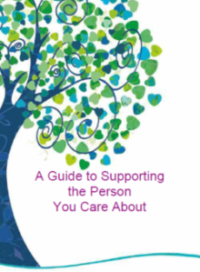Support for Supporters
If someone you know has told you that she was raped or sexually assaulted, the most important thing you can do is to listen to her and believe what she says. Survivors can fear the impact that their disclosure will have on their life and on those closest to them: they might be ignored, judged or not believed. She has been incredibly brave in disclosing to you.
Supporting a friend, family member or partner who has experienced sexual violence can be difficult, even overwhelming at times. When a person has been raped or sexually abused it can affect how they think, feel, behave and see the world and those around them, which can be difficult for those around them to understand or cope with. Family, friends and partners can also experience many confusing feelings of sadness, frustration, guilt, loneliness, helplessness and/or shock. These are all very natural responses to seeing someone you care about hurting.
Do:
- Believe what she tells you. Women and girls rarely lie about sexual violence, and if she senses disbelief she might never tell anyone again. Traumatic events can sometimes cause memory problems; if she ever seems to contradict herself or add new facts, this doesn’t mean she’s making the whole thing up.
- Let her say what she needs to say in her own time, in her own words. It takes a great deal of strength and courage both to survive and to talk about experiences of sexual violence; acknowledge that.
- Help her to make her own choices by exploring her options with her. An important part of dealing with the powerlessness of sexual violence is learning to feel in control again, so try not to do anything which takes control away from her.
- Remember it’s not her fault. Affirm the fact that she used her survival skills to stay alive, and that compliance is not consent. No survivor should ever be blamed for what has happened to her – it is the fault of the perpetrator.
- Take your needs seriously and seek support for yourself or make sure you set aside time to look after yourself.
Dont:
- Never doubt what she tells you about her experiences. It may be very difficult to believe that such a terrible thing has been done, especially if you know the perpetrator, but the truth is that women and girls rarely lie about sexual violence.
- Never trivialise or dismiss her feelings or experiences. It may be easy to compare it to something more terrible, perhaps that someone else has experienced, but saying things like ‘it could be worse, it wasn’t as bad as…’ is never helpful. Recognise the pain she’s going through.
- Do not expect her to react in any one way. Everyone deals with the effects of sexual violence differently and at their own pace. Even if you have been through similar experiences, everyone reacts differently, so do not be surprised if she reacts and copes in her own unique way.
- Remember, you are not a miracle-worker. The best you can do is let her know that you care about her and are there if she wants to talk. More information on supporting a person you care about can be found in our guide to supporting the person you care about.
It is also important that you look after yourself during this time. Supporting your child following the impacts of rape or sexual abuse can be incredibly emotionally challenging. It’s important that you take note of this and have a safe space where you are able to express how you are feeling as well. Our helpline and email support services offer a safe and confidential space to explore your feelings.
More information on supporting a person you care about can be found in our guide to supporting the person you care about.
